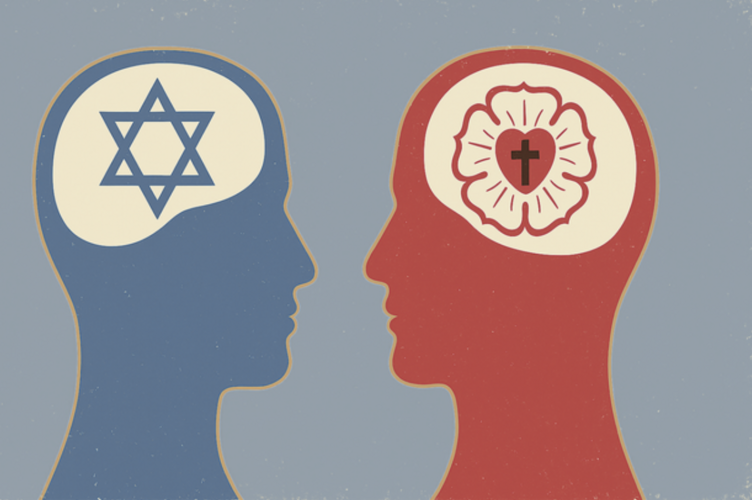In the long and troubled history of Jewish-Christian relations, the encounter between Jews and Protestants in Germany between in the 19th and 20th century carries significant importance: in this high-time in the history of Protestant theology – when theologians developed new scientific methods to study Scripture and new conceptual categories to study religion, Jewish intellectuals were looking for their place within the evolving landscape of German scholarship. Heavily influenced by their German neighbors yet often rejected and belittled by them, Jewish scholars developed their own academic institutions and their own scientific methods to grapple with German theology, intellectually, socially and politically. This is a chapter of history that weaves together comparative religion, theology, German history, Jewish thought, and the history of antisemitism.
World War II and the destruction of European Jewry profoundly fractured the history of the Jewish-Christian encounters. The role of Christian individuals, institutions and ideas in facilitating the destruction of European Jewry is a sensitive and complex issue that requires nuanced and careful historiographic work. In the aftermath of the catastrophe, Jews and Christians turned to reshape their relationship in light of the tormenting memories of the Shoah; a significant effort was made by Christian theologians to cleanse their religious and scientific traditions from anti-Jewish and antisemitic tropes.
The seminar focuses on these complex historical transitions in the relationship between Jews and Protestants in Germany, exploring intellectual exchange, mutual perceptions, and interreligious ensions in crucial intersections in the 19th, 20th and 21st centuries.
Building on the diverse expertise of the seminar’s professors, the course’s sessions will focus especially on the following themes:
- Historical Background: Jews and the reformation.
- The history of Protestant critical Biblical scholarship and its impact on Jewish-Christian Relations
- The Development of Jewish Studies (Wissenschaft des Judentums) in relation to Protestant scholarly traditions
- Jewish-Christian Polemic in 19th and early 20th century German academia
- The Church-Struggle in Nazi Germany and the question of theological antisemitism
- Post-Holocaust Jewish and Christian Theologies and the history of Jewish-Christian Dialogue
- Contemporary representation of Jews in Protestant religious education and of Christians in Jewish education
The 5-day seminar will be divided into in-class discussions, guided field trips in Leipzig and Wittenberg, guest lectures, and workshops. One day will be dedicated to a field trip to Wittenberg, focusing on the history of the Reformation and its impact on Jewish-Christian relations.
Organizers/Course teachers:
Prof. Karma Ben Johanan, Comparative Religion (Hebrew University)
Jun. Prof. Yemima Hadad, Judaistik (University of Leipzig)
Prof. Andreas Schüle, Alte Testament (University of Leipzig)
Prof. Frank Lütze, Religionspädagogik (University of Leipzig)
Speakers and Guest lecturers:
Rabbi Zsolt Balla
Mr. Nimrod Baratz
Prof. Roderich Barth
Prof. Karma Ben Johanan
Prof. Asher Biemann
Prof. Alexander Deeg
Prof. Klaus Fitschen
J.Prof. Yemima Hadad
Prof. Katharina von Kellenbach
Prof. Frank Lütze
Prof. Andreas Schüle
Dr. Christian Staffa
The seminar is a collaboration between the Department of Comparative Religion, The Hebrew University of Jerusalem and The Faculty of Theology, The University of Leipzig.
